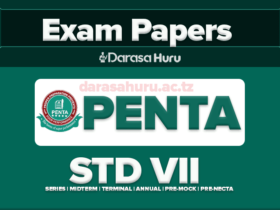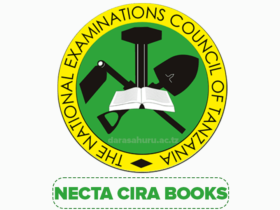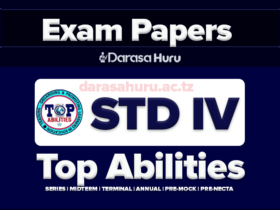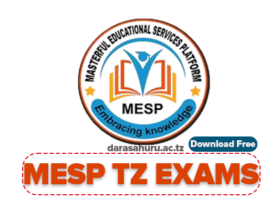Pronouns – Definition, Types, Examples and Exercises | Parts Of Speech
KINDS OF PRONOUNS
- Personal pronouns
- Demonstrative pronouns
- Interrogative pronouns
- Reflexive pronouns
- Relative pronouns
- Possessive pronouns
1. Personal pronouns
This is the kind of pronouns which indicates the persons which are first person, second person and third person. These include me, you, them, us, us, it, him, her, me, them, him, her etc.
Categories of personal pronouns
i. Subjective personal pronouns – it is the category of personal pronouns which stand in the place of the subject in the sentence. These are:
| Persons | Singular | Plural |
| 1st person | I | We |
| 2nd person | You | You |
| 3rd person | He/ She/ It | They |
Examples:
- You took my mobile phone.
- We are waiting for dinner.
- I cook rice and meet.
- He kept the promise.
ii. Objective personal pronouns – it is a category of personal pronouns which stand in the place of object or at the end of the sentence. These are:
| Persons | Singular | Plural |
| 1st person | me | us |
| 2nd person | you | You |
| 3rd person | him/her/it | Them |
Examples:
- She insulted
- He told
- It threatened
- I warned
2. Demonstrative pronouns
This is the kind of pronoun that point out or show where something is or found. They are used to show if the object is in the far place or found at the nearest position. These include this, that, these and those.
| This | Used to point near object or sometimes object which held by the speaker which is in singular forms |
| That | Used to show far object which is not held by the speaker which is in singular |
| These | Used to show near objects or sometimes held by the speaker which is in plural form |
| Those | Used to show far objects which is not held by the speaker which is in plural form and sometimes used to show things which existed in the past time |
Examples:
- This student should be punished.
- That student should be punished.
- Thatpen is mine.
- These are my books.
- Those students remained.
3. Relative pronouns
This is the kind of pronouns which indicate the relation between the nouns and their actions. These are who, which, whose, whom, where and that.
|
Who
|
It is used only for human being and it is used before an action in a sentence. Eg. – This is a teacher who taught us English. – A gentleman who preached in the church is coming. – A man who speak French is my uncle |
| Which |
It is used only for animal and things; it is placed before an action in a sentence but sometimes placed before subjective personal pronouns. Eg. – A cat which drank my milk is not ours. – The bees which you provoked are dangerous – The flower which I told you |
| Whose |
It is used for both things/animals and human being. It is placed immediately before nouns which are in sentence to show possession. E.g. – A woman whose mobile phone was stolen has come. – A cat whose tail has cut is ours. – This is a boy whose sister went to America. |
| Whom |
It is used on for human beings. It is also used immediately before subjective personal pronouns and a noun which is in place of a subject. E.g. – A man whom we talk about has arrived. – A boy whom a cat bit is my young brother. – A girl whom I love has arrived. |
| Where |
It is used only for places and it is also used before subjective personal pronouns and nouns which stand in place of the subject. E.g. – The hotel where they hide is a safe place. – The place where I was born is my native village. |
| When |
It is used to indicate a time of an event and it is placed before subjective personal pronouns. E.g. – You told me the story when we met – The students will remain in the class when it is raining. – That was the time when we met. |
| That |
It used for all people, things and animals. It can be placed in the place of which, who, whom and where. It is normally used before subjective personal pronouns. E.g. – The cat that I told you has died. – The story that you told me it was funny. – This is a teacher that taught us English |
4. Interrogative pronouns
This is the kind of pronouns which are used to ask questions. These include what, where, which, when, why and how.
E.g.
- Who stole my pen?
- When did you arrive?
- Which is the best between orange and mangoes?
- What is your name?
- Where is your place of origin?
- Why are you making noise?
- How old are you?
5. Reflexive pronouns
It is the kinds of pronouns that refer back to the subject of the clause in which it is used. It is the one which returns back the action to the doer. These involve the use of possessive pronouns with the expression self if it is singular form and selves if it is in plural forms. These are involve herself, himself, itself, yourself, themselves, ourselves and yourselves.
E.g.
- It knocked the window and killed itself.
- You ate the food yourself.
- We elected our leader ourselves.
6. Possessive pronouns
This is the kind of pronouns which indicates possessions of a noun. It shows that somebody owns something or something owns something.
These involve my, mine, your, yours, their, theirs, her, hers, his, its, our and ours. These divided into subjective possessive pronouns and objective possessive pronouns.
| Subjective possessive pronouns | ||
| Persons | Singular | Plural |
| 1st person | My | Our |
| 2nd person | Your | Your |
| 3rdperson | His/her/its | Their |
| Objective possessive pronouns | ||
| Persons | Singular | Plural |
| 1st person | Mine | Ours |
| 2nd person | Yours | Yours |
| 3rd person | His/hers/its | Theirs |
Example:
- My book is lost. It is
- Your house is burned. It is
- Their shop is nearby the garage. It is theirs
- Her mobile phone has been stolen. It is
- Its wings are transparent. It is
Pronoun Exercises with Answers
Complete the exercises given below and check your answers once you are done.
Exercise 1
Fill in the blanks with appropriate pronouns
Read the following sentences and use the appropriate pronouns.
- Murat is a good boy. __ always listens to__ teacher.
- Amit and Sumit are twin brothers. ___ take the same bag to school.
- Milly and I are very good friends. ___ have known each other since childhood.
- The mangoes are very sour. Where did you buy ___?
- I love watching Tom and Jerry. __ reminds me of my childhood days.
- I bought this book for my sister. __ often read it together.
- This is Steve. Do you know __?
- There are many windows here. But all of ___ are jammed.
- The army has reached __ destination.
- My aunt and uncle live in Delhi. ___ often visit ___.
- While playing basketball, I hurt ____.
- The children locked ___ up in the cupboard while playing hide and seek.
- I bought __ flowers for my anniversary.
- All the boys participated in the race and ___ one of them got a prize.
- ___ of the witnesses were present in the court.
- I met Peter ___ just returned from Belgium.
- Raju set for ___, a target which was difficult to achieve.
- The criminals ___ admitted their crime.
- This is the girl __ identified the burglar.
- The book is Anne’s. It is __ favourite book.
Answers for Exercise 1
- He, his
- They
- We
- Them
- It
- We
- Him
- Them
- Their
- We, them
- Myself
- Themselves
- These
- Each
- None
- Who
- Himself
- Themselves
- Who
- Her
Exercise 2
Use the correct form of pronouns
Choose the correct pronoun and use it in the sentence.
- (Me/I) feel like taking a short trip to the Maldives
- (I/me) think you should participate in the debate.
- Wuthering Heights is (her/hers) favourite book.
- Those papers are (mine/my).
- The box was lying around. Is (it/its) yours?
- The dog almost choked (himself/itself).
- Natasha was all by (yourselves/herself)
- I got (me/myself) all wet.
- (That/this) book lying here is mine.
- (Each/neither) of us were given a gift hamper.
- Do you want (that/it) pen?
- I lost the toy you gave (me/myself)
- This house is (ours/our).
- It was (their/theirs) car.
- Do you know (his/him)?
Answers for Exercise 2
- I
- I
- Her
- Mine
- It
- Itself
- Herself
- Myself
- This
- Each
- That
- Me
- Ours
- Their
- Him
Directions for questions: Fill the blanks with the correct form of pronouns.
1. We scored as many goals as ____ (they/them).
2. I am one year older than ____ (he/him).
3. He is as good a student as ____ (she/her).
4. Between you and ____ (I/me) he is a liar.
5. Let ____ (he/him) who can, save her from drowning.
6. The boy ____ (who/whom) fell off his bicycle has hurt his leg.
7. I have not seen the girl ____ (whose/whom) suitcase was stolen.
8. Seema is the maid ____ (who/whom) I have employed.
9. This is the paragraph about ____ (that/which) the teacher is talking.
10. The letter ____ (which/what) he wrote reached me late.
11. The jury has given ____ (its/their) verdict.
12. The Cabinet gave ____ (their/its) vote.
13. The Secretary and Treasurer did not do ____ (their/his) job.
14. Each policeman and each home guard was at ____ (their/his) post.
15. Neither John nor Tom has done ____ (their/his) work.
16. Either the leader or his followers did not do ____ (their/his) duty.
17. She and I completed ____ (our/ours) work.
18. Riya and ____ (myself/I) went to Kerela.
19. He ____ (that/whom) is down need fear no fall.
20. She ____ (herself/themselves) saw the thief.
Pronoun Exercises With Answers
Exercise 1:
Personal Pronouns
Replace the nouns in the sentences with the correct personal pronouns.
1. Sarah went to the store.
2. The dog chased the cat.
3. John and I are going to the movies.
4. The children are playing in the park.
5. Mr. Smith teaches the students.
Answers:
1. She went to the store.
2. It chased it.
3. We are going to the movies.
4. They are playing in the park.
5. He teaches them.
Exercise 2:
Possessive Pronouns
Fill in the blanks with the correct possessive pronouns.
1. This book belongs to me. It is _____.
2. That car belongs to my parents. It is _____.
3. This pen belongs to you. It is _____.
4. That house belongs to us. It is _____.
5. This is his jacket. It is _____.
Answer:
1. It is mine.
2. It is theirs.
3. It is yours.
4. It is ours.
5. It is his.
Exercise 3:
Reflexive Pronouns
Complete the sentences with the correct reflexive pronouns.
1. I made this cake by _____.
2. She looked at _____ in the mirror.
3. We did the project by _____.
4. The cat cleaned _____.
5. They taught _____ to play the guitar.
Answers:
1. I made this cake by myself.
2. She looked at herself in the mirror.
3. We did the project by ourselves.
4. The cat cleaned itself.
5. They taught themselves to play the guitar.
Exercise 4:
Relative Pronouns
Fill in the blanks with the correct relative pronouns (“who,” “which,” or “that”).
1. The person _____ called you is my friend.
2. This is the book _____ I was telling you about.
3. The car _____ is parked outside is mine.
4. The woman _____ lives next door is a doctor.
5. The movie _____ we watched last night was thrilling.
Answers:
1. The person who called you is my friend.
2. This is the book that I was telling you about.
3. The car which is parked outside is mine.
4. The woman who lives next door is a doctor.
5. The movie that we watched last night was thrilling.
Exercise 5:
Subject and Object Pronouns
Choose the correct pronoun for each sentence.
1. (He/Him) is my best friend.
2. I saw (she/her) at the mall yesterday.
3. (They/Them) are going to the concert tonight.
4. Can you help (we/us) with this project?
5. The teacher gave (I/me) a new assignment.
Answers:
1. He is my best friend.
2. I saw her at the mall yesterday.
3. They are going to the concert tonight.
4. Can you help us with this project?
5. The teacher gave me a new assignment.
Exercise 6:
Choose the Correct Option
1. (She/Her) is planning a surprise party for (they/them).
2. The book belongs to (he/him). I borrowed it from (he/him) yesterday.
3. (We/Us) went to the park because (our/ours) dog needed some exercise.
4. (This/These) are my favourite shoes. (They/It) are very comfortable.
5. Can you tell (she/her) where (they/them) are?
6. (He/Him) and (I/me) are working on a group project.
7. The company gave (we/us) a bonus for (our/ours) hard work.
8. (It/Its) is important to remember to water (your/you) plants regularly.
9. (They/Them) asked if (I/me) could help with the setup.
10. The manager spoke to (he/him) and (I/me) about the upcoming changes.
Answers:
1. She is planning a surprise party for them.
2. The book belongs to him. I borrowed it from him yesterday.
3. We went to the park because our dog needed some exercise.
4. These are my favourite shoes. They are very comfortable.
5. Can you tell her where they are?
6. He and I are working on a group project.
7. The company gave us a bonus for our hard work.
8. It is important to remember to water your plants regularly.
9. They asked if I could help with the setup.
10. The manager spoke to him and me about the upcoming changes.
Exercise 7.
Fill in the Blanks With Suitable Pronouns
1. Sarah and Paul are siblings. __ always play together after school.
2. The book is on the table. __ is my favourite.
3. Jack and I went to the concert. __ had a great time.
4. The teacher asked Maria to come to __ office. __ needs to discuss her homework.
5. Lisa loves to read. __ often visits the library to find __ next book.
6. The cat is sleeping on the sofa. __ looks very comfortable.
7. Tom gave the gift to Alice. __ was very pleased with __.
8. My friends are coming over later. __ will be bringing __ games.
9. The children are playing in the garden. __ are having fun with __ new toys.
10. David found a wallet in the park. __ took it to its owner.
Answer:
1. Sarah and Paul are siblings. They always play together after school.
2. The book is on the table. It is my favourite.
3. Jack and I went to the concert. We had a great time.
4. The teacher asked Maria to come to her office. She needs to discuss her homework.
5. Lisa loves to read. She often visits the library to find her next book.
6. The cat is sleeping on the sofa. It looks very comfortable.
7. Tom gave the gift to Alice. She was very pleased with it.
8. My friends are coming over later. They will be bringing their games.
9. The children are playing in the garden. They are having fun with their new toys.
10. David found a wallet in the park. He took it to its owner.
Kinds of Pronoun Exercise
Exercise: Identify the Type of Pronoun
Instructions: For each sentence, identify the type of pronoun used. The options are Personal Pronoun, Possessive Pronoun, Reflexive Pronoun, Relative Pronoun, Demonstrative Pronoun, and Interrogative Pronoun.
-
She is going to the store to buy groceries.
-
This is my book, not yours.
-
The cat hid behind itself when the door opened.
-
The student who answered the question correctly was praised.
-
These are the best cookies I have ever eaten.
-
Who is coming to the party tonight?
-
He bought a new car for himself.
-
Whose jacket is this on the chair?
-
They finished their homework before dinner.
-
The book on the table is hers.
Answers:
-
She – Personal Pronoun
-
my, yours – Possessive Pronouns
-
itself – Reflexive Pronoun
-
who – Relative Pronoun
-
These – Demonstrative Pronoun
-
Who – Interrogative Pronoun
-
He, himself – Personal Pronoun, Reflexive Pronoun
-
Whose – Interrogative Pronoun
-
They – Personal Pronoun
-
hers – Possessive Pronoun







Leave a Reply